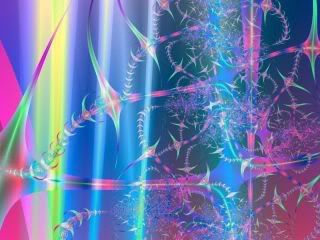
Today, for some reason, my thoughts have been full of my late
Guru, Pandit V G Jog. And someone dropped by out of the blue
after several years and handed me a CD of a couple of his All
India Radio recordings.
In articles about Gurus and other legendary figures, I have
observed that the writer often hints of himself or herself
as the Chosen One. Since I wasn't the Chosen One, that should
not be a problem. But bear with me if I mention myself a
couple of times if its relevant to the tale.
Pandit Jog was a wonderful man. He was born on February 14
1922 in Bombay. His mother was the first musical influence
on him, if I recall right. Thereafter, after learning vocal,
tabla and harmonium, he gravitated towards the violin and
made it big. I'll skip information you can easily find on
the net. Let me focus on the man and the Guru.
The difficulty with this man was that he could not turn away
students. His tiny music room in Kolkata was always full of
admirers and students and unknown drifters. The image that
remains is of a short, stout man sitting on a sofa, guiding
a student (or two) or writing sequences of notes endlessly.
A talkative and social man, you could always expect a joke
or amusing anecdote from him. He suffered fools (like me)
and lived a life immersed in an ocean of music not available
to us.
He would take students on stage and actually give lessons
in real time. There was no possibility of making errors.
That tenuous link of student and guru was possibly invisible
to everyone else; something ethereal marked the moment. A
communique via notes, via silence, a deliberately missed beat
...how can one explain that? Such magical moments are beyond
private - they are divine. Needless to say, the times I
played with him in public remain cherished memories, not so
much because I played in public but that he had faith in me.
I am sure my other fellow students had the same thoughts
when he called upon them.
Sometimes its tiresome to read endless praises about
someone. On the other hand, its easy to write endlessly
about someone one really loved and admired. I loved him
very much and he loved me in turn, as he loved all his
students. His brilliance as a teacher was mindblowing.
A gesture, an inflection in voice, a sudden digression
to explain an analog elsewhere; it was easy to be conned
into believing it was purely logical and simple. Such were
his subtle hints about Gara and Jaijaiwanti, the links between
Maru Bihag, Hamir, Alhaiya Bilawal, Gaur Sarang and more,
Bilaskhani Todi and Bhairavi. It does not matter that he
has gone, everything is vivid and will go when I do. The
foulest student could be polished into a maestro by such
a teacher.
I have avoided saying anything personal to which I was
privy. But I cannot help recalling with deep sorrow his
last painful years. It happened that I was in Kolkata as
he was sinking (though not at the end). Much was exchanged
as he drifted in and out of consciousness. His bright eyes
smiled for him as nature went ahead with her plans.
I was very lucky, of that I have no doubt. Guru, musician,
gentleman all rolled in one. That was Pandit Jog, whose
violin's sweet notes still remain in my heart. I wish
everyone the same fortune this Diwali.
I leave you with his Bhairavi.
Cordially
VM

